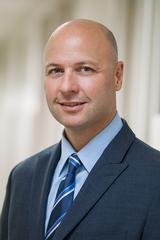Gastrointestinal Physiology and Psychology T32
Our Mission
Functional GI and Motility disorders, which include IBS, GERD, dyspepsia, non-obstructive dysphagia, globus sensation, functional nausea/vomiting and rumination syndrome are of particular concern to gastroenterologists. These diseases have poorly understood pathophysiology, carry substantial overlap, lack reliable biomarkers, and are associated with significant impairment and few effective treatments. Clinical trials for these disorders have targeted symptom reduction or improved symptom tolerance, rather than disease modification. This approach stands in stark contrast to the scientific and clinical approach to other chronic gastrointestinal diseases (e.g., IBD, hepatitis C) whereby science in disease pathogenesis is more advanced and treatments, while not always curative, substantially decrease morbidity and mortality and improve quality of life.
The “science gap” in motility and functional GI disorders is fueled by two fixable problems:
- Research, training and practice in gastrointestinal diseases has maintained a dichotomous separation of disorders as either organic (e.g. related to inflammation, infection, malignancy) or functional (e.g. related to dysmotility, visceral hypersensitivity and psychological distress)(6). This simplistic approach has led to an inability to integrate and investigate the interactions between the major components of symptom generation and frankly forces investigators to choose their research questions according to diagnosis (eosinophilic esophagitis) and scientific approach (basic science vs. clinical research) rather than disease process (e.g. the mechanics of foregut function, visceral hypersensitivity, symptom hypervigilance).
- Research, training and practice in gastrointestinal diseases has failed to develop and/or effectively use well-validated markers of disease and disease processes, including both biomarkers and self-report markers acquired directly from patients. This measurement gap not only negatively impacts our ability to characterize our patient populations—it limits our understanding of the pathophysiology underlying these conditions (we can’t know what we don’t measure or observe), limits the value of translational research, results in the use of inadequate endpoints for clinical trials and restricts the development of effective, tailored therapies.
The specific aims or objectives of this training grant are:
- To develop research scientists who are ready to conduct independent research driven by hypotheses that incorporate biomechanical, neuro-immunological, and psychophysiological models of functional and motility disorders.
- To mentor the next generation of gastroenterology researchers who will require a more fluid interface between pathophysiologic mechanisms and clinically relevant patient outcomes.
The combined training of predoctoral candidates in biomedical engineering and psychology with postdoctoral clinical fellows in gastroenterology and psychology emphasizes the objective of the specific aims as a continuum between research and patient care.

John Pandolfino, MD
Program Director
Michael Wolf, PhD/MPH
Program Director
Deborah Everds
Research Administrator
Hannah Kelemen
Fellowship Coordinator
Program Eligibility and Application Process The Training Program in the GI Physiology and Psychology, housed within the Division of Gastroenterology and Hepatology at Northwestern University Feinberg School of Medicine is announcing the call for applications for predoctoral and postdoctoral appointments for the 2018-2019 academic year. One predoctoral and one postdoctoral 2-year appointment are projected to be open.
The Training Program in the GI Physiology and Psychology, housed within the Division of Gastroenterology and Hepatology at Northwestern University Feinberg School of Medicine is announcing the call for applications for predoctoral and postdoctoral appointments for the 2018-2019 academic year. One predoctoral and one postdoctoral 2-year appointment are projected to be open.
Trainees will have the opportunity to choose a research emphasis area. While cross-training is an important component of the program, trainees will acquire in-depth expertise in one of 2 areas:
- Motility, Physiology and Biomechanics of the Upper GI Tract which includes training in advanced diagnostic testing, translational physiology and exploring applications of mechanical engineering principles to study gastrointestinal function.
- Brain-Gut Track which includes training in intervention science, patient-reported outcomes, neuroscience and brain imaging and behavior change.
We are seeking trainees from:
- Gastroenterology
- Surgery
- Internal Medicine
- Psychology
- Public Health
- Engineering
- Neuroscience
Program Eligibility
Predoctoral Appointments
Predoctoral appointments will begin in September 2018. T32 funding is for US citizens or permanent residents (in accordance with NIH policy). Individuals from underrepresented groups and individuals with disabilities are strongly encouraged to apply.
Applicants should apply via our Applicant Data Form. In addition to a CV that will be uploaded on the Applicant Data Form, materials including a 2-page research proposal and a letter of support from at least one potential mentor at Northwestern should be sent by email to Hannah Kelemen. The potential mentor’s support letter should describe the training plan for the applicant, including an overview of funding and other students working in the lab.
Postdoctoral appointments
Postdoctoral appointments will begin in July, 2018. T32 funding is for US citizens or permanent residents (in accordance with NIH policy). Individuals from underrepresented groups and individuals with disabilities are strongly encouraged to apply.
Applicants should apply via our Applicant Data Form. In addition to a CV that will be uploaded on the Applicant Data Form, materials including a 2-page research proposal and a letter of support from at least one potential mentor at Northwestern should be sent by email to Hannah Kelemen. The potential mentor’s support letter should describe the training plan for the applicant, including an overview of funding and other students working in the lab.
Candidates must meet NRSA citizenship and support requirements:
Citizenship: Any individual to be trained must be a citizen or noncitizen national of the United States or have been lawfully admitted for permanent residence at the time of appointment.
NRSA Support: No individual trainee may receive more than 5 years of aggregate Kirschstein-NRSA support at the predoctoral level and 3 years of aggregate Kirschstein-NRSA support at the postdoctoral level, including any combination of support from Kirschstein-NRSA institutional research training grants and individual fellowships.
Participating MentorsView a list of current primary and secondary mentors.
View a list of current primary and secondary mentors.
| Primary Mentors | Secondary Mentors |
|---|---|
|
Paul Bryce, PhD |
T32 Executive CommitteeMeet the members of the T32 Executive Committee.
Meet the members of the T32 Executive Committee.
Current TraineesMeet current trainees and learn more about their research projects.
Meet current trainees and learn more about their research projects.

Salva Najib Balbale, MSResearch Project: Salva is interested in evaluating and enhancing the quality and delivery of health care for patients with chronic GI disorders. Her aim is to understand the persistent gaps in the delivery of GI care and the subsequent patient outcomes. Her current research focuses on opioid use among veterans receiving chronic GI care in the VA. |

Meredith Craven, MPHResearch Project: Meredith is interested in using community-based research methods to create behavioral interventions that address the disparities in and socio-contextual determinants of gastrointestinal and esophageal disorders among minority population. |

Livia Guadagnoli, MSResearch Project: Livia is interested in the psychophysiology related to gastrointestinal and esophageal disorders. Specifically, she is studying the relationship between physiological parameters and hypervigilance in people with functional esophageal disorders. |
|
|
Program Expectations and Fequently Asked QuestionsView a list of program expectations and learn more about the program.
View a list of program expectations and learn more about the program.
What is a Payback Obligation and how do I know if I incur one?
Any NRSA postdoctoral trainees or fellow incurs a payback obligation during their first year of support. Pre-doctoral NRSA trainees do not incur a payback obligation. Payback means that you will perform qualified research or teaching activities for a length of time equal to the period of NRSA support you received. Receiving 12 months of postdoctoral training support obligates you to perform 12 months of qualified research or teaching activities as payback. Only the first year of training incurs a payback obligation; the second year of training pays back the first year, with each month of qualifying payback activity paying back one month of NRSA support. If you receive two full years of NRSA training, you will have completed your payback obligation. In general, payback activity must involve at least 20 hours per week and be conducted over 12 consecutive months. Special exceptions to these requirements may be considered on a case-by-case basis.
Additional resources on Payback Obligations can be found on the NIH website:
Trainee ResourcesSee a list of resources dedicated to T32 trainees.
See a list of resources dedicated to T32 trainees.
The following resources are made available to trainees:
